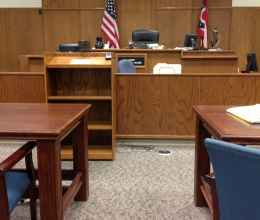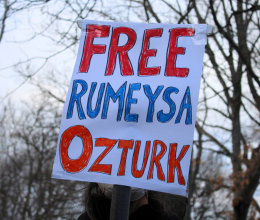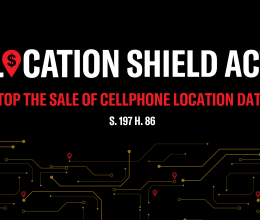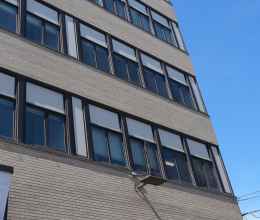A coalition of advocacy groups today released questionnaire responses from one Boston Mayoral and seven City Council candidates on a range of policing and criminal justice issues.
The questionnaire – prepared by the ACLU of Massachusetts, Muslim Justice League, Families for Justice as Healing, Digital Fourth, Council on American-Islamic Relations – Massachusetts, Young Abolitionists, Boston Police Camera Action Team, and Boston Coalition for Police Accountability – was sent to all general election candidates in late September. The questionnaire raises the profile of issues that are infrequently discussed in municipal elections but have a significant impact on the daily lives of the people of Boston.
The candidates’ responses are available online as a voter education resource in advance of the November 7 general election.
“As our federal government distances itself further and further from the values of Massachusetts voters, we must remember that local elections also matter,” said Kade Crockford, Director of ACLU of Massachusetts’ Technology for Liberty Program. “Local elected officials have considerable power to shape and implement policies that impact all of us. We thank the candidates who took time out of their busy campaign schedules to provide their views on these critical public policy matters, and we are hopeful that their responses will empower the electorate to make informed decisions on Election Day.”
"The responses we got and didn't get to the questionnaire expose a gap between policing policy and policy makers in Boston,” said Mallory Hanora of Families for Justice as Healing. “We need elected officials who will prioritize addressing these critical policing issues with input from residents. In order to do that, we all need more data and transparency from the Boston Police Department."
"We thank all the candidates that took the time to complete this questionnaire," said Nazia Ashraful, Government Affairs Director of CAIR-MA. "We are happy to see awareness on critical security and policing issues be brought into the local electoral races. We are looking forward to seeing this awareness continue as conversations between constituents and their local elected officials even beyond this electoral cycle. It is only together that we can create the policies necessary for all members of the Commonwealth to feel safe and valued."
"Local policing practices can have a profound impact on the lives of marginalized communities, alone or in conjunction with abusive federal programs,” said Fatema Ahmad, deputy director of Muslim Justice League. "We hope the questionnaire responses that were received help residents engage candidates and elected officials for more just policing policies, even beyond the election."
The questionnaire asked candidates to provide their positions on policing issues related to immigration, information sharing with the federal government, surveillance, racial profiling, drug arrests, police militarization, use of force, plain clothes policing, overtime spending, and transparency and public accountability. Organizers also created a toolkit for residents on the issues covered by the questionnaire so Bostonians would be more equipped to engage in the election.
Boston Mayoral and City Council candidates show views on policing, immigration
Related content

Federal Court Grants Preliminary Injunction Against Department of...
April 24, 2025
Court Rules Rümeysa Öztürk’s Lawsuit Should Move Forward in Vermont...
April 18, 2025
Advocates, experts call on lawmakers to ban sale of location data
April 9, 2025
Court Rules Rümeysa Öztürk’s Lawsuit Should Move Forward in Vermont
April 4, 2025